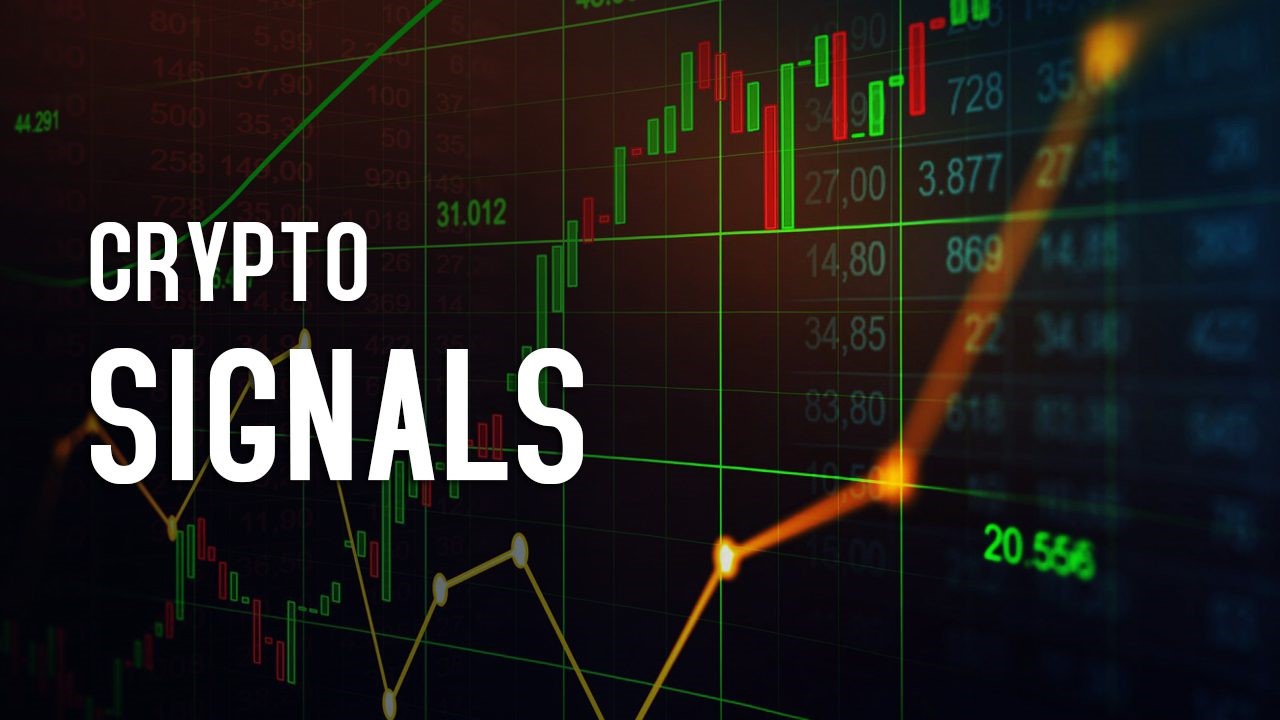
In the fast-paced and ever-evolving world of digital cryptocurrency trading, signal trading has emerged as a popular tool to aid traders in their quest for profitable investments. By analyzing market trends, historical data, and various indicators, signal trading aims to provide timely and accurate signals to traders, guiding them towards potential trading opportunities.
The allure of signal trading lies in its promise of assisting traders in making informed decisions. It offers a systematic approach that can potentially enhance profitability and minimize risks. By relying on sophisticated algorithms and advanced technologies, signal trading algorithms can swiftly analyze vast amounts of data that would be otherwise overwhelming for individual traders to process.
However, despite its promises, the question of trustworthiness looms over signal trading for digital currency trading. After all, entrusting one’s financial decisions to an automated system can be a daunting prospect. The reliability and accuracy of these signals become crucial factors that traders must carefully consider before incorporating signal trading into their strategies.
One of the key benefits of crypto trading signals is its ability to eliminate emotional biases from trading decisions. Human emotions, such as fear and greed, can often cloud judgment and lead to irrational trading choices. Signal trading, on the other hand, relies solely on data-driven analysis, devoid of emotional influences. This aspect can potentially lead to more disciplined and objective trading practices.
Furthermore, signal trading can be particularly advantageous for novice traders who lack the experience and knowledge required to navigate the complex world of digital currency trading. By relying on signals generated by proven algorithms, traders can gain valuable insights and learn from the strategies employed by more seasoned traders.
Nevertheless, it is crucial to acknowledge the limitations and risks associated with signal trading. While algorithms can analyze vast amounts of data, they are not infallible. Market conditions can change rapidly, rendering previously reliable signals obsolete. Additionally, signal trading systems are only as good as the underlying algorithms and data they rely on. Flaws or biases in the programming or inadequate data sources can compromise the accuracy of the signals generated.
To make an informed decision regarding the utilization of signal trading, traders must consider several factors. Firstly, it is essential to thoroughly research and select a reputable signal trading provider. Trusted providers should have a track record of generating reliable and accurate signals over an extended period. Additionally, it is advisable to assess the transparency and methodology employed by the signal trading system to ensure that it aligns with one’s trading objectives and preferences.
Moreover, traders should view signal trading as a supplementary tool rather than a standalone strategy. Combining signals with their own analysis and understanding of the market can enhance the effectiveness of signal trading. This approach allows traders to validate signals and make more informed decisions based on a comprehensive understanding of the market dynamics.
In conclusion, signal trading has gained popularity as a valuable tool in the world of digital currency trading. While its benefits, such as eliminating emotional biases and providing insights to novice traders, are evident, the question of trustworthiness remains valid. By carefully considering the limitations, risks, and doing thorough research on signal trading providers, traders can make informed decisions and potentially benefit from this powerful tool.
Signal trading is a popular approach in the financial markets, allowing traders to make informed decisions based on the insights provided by trading signals. These signals act as valuable tools, offering traders guidance on potential trading opportunities that they may not have otherwise considered.
Trading signals can be generated through various methods. One common approach is through the use of algorithms, which are computer programs designed to analyze vast amounts of data and identify patterns or trends. These algorithms consider a wide range of factors, such as historical price data, market volatility, and technical indicators like moving averages, oscillators, or support and resistance levels.
Experienced traders also play a crucial role in generating trading signals. These traders possess years of market knowledge and expertise, allowing them to interpret market trends and identify profitable opportunities. Through their analysis of fundamental factors, economic news, and market sentiment, these traders can generate signals that reflect their insights and predictions.
The primary objective of signal trading is to provide traders with timely and actionable information. By receiving signals promptly, traders can capitalize on potential market movements before they become widely recognized. This advantage can significantly enhance their chances of making profitable trades and achieving their financial goals.
Signal trading offers several benefits to traders. Firstly, it saves time and effort as traders do not have to spend hours analyzing the market themselves. Instead, they can rely on the expertise of algorithmic models or experienced traders to generate reliable signals. Additionally, trading signals provide traders with a level of objectivity, helping them avoid emotional biases that can lead to poor decision-making.
However, it is crucial to note that signal trading is not a guaranteed pathway to success. While signals can offer valuable insights, they are not infallible, and there is always a degree of risk involved in trading. Traders must exercise caution and use their own judgment before executing trades based on signals. It is recommended to thoroughly evaluate the reliability of the signal provider, consider market conditions, and incorporate risk management strategies to mitigate potential losses.
In conclusion, signal trading is a valuable approach that provides traders with timely and insightful information to guide their trading decisions. By leveraging trading signals generated by algorithms or experienced traders, traders can enhance their trading strategies, save time, and potentially increase their profitability. However, it is crucial to exercise discretion, perform due diligence, and consider market conditions before relying solely on trading signals.
Benefits of Signal Trading:
1. Time-saving: Signal trading can save traders time by providing them with pre-analyzed information, eliminating the need for extensive market research.
2. Access to expertise: Signal trading allows traders to benefit from the knowledge and experience of professional traders or advanced algorithms.
3. Objective decision-making: Trading signals are based on data and analysis, reducing the influence of emotions in trading decisions.
4. Increased efficiency: With signal trading, traders can execute trades more efficiently as they receive real-time notifications and alerts, allowing them to react quickly to market movements.
5. Diversification: Signal trading provides traders with the opportunity to diversify their portfolio by following multiple signal providers or strategies simultaneously. This can help spread the risk and potentially increase profitability.
6. Learning opportunity: By following signal providers or algorithms, traders can gain insights into different trading strategies and approaches. This can be a valuable learning experience and help traders improve their own trading skills over time.
7. Accessibility: Signal trading is accessible to both novice and experienced traders. Novice traders can learn from professionals, while experienced traders can benefit from automation and the ability to follow multiple signals simultaneously.
8. Consistency: Signal trading allows traders to follow a consistent trading plan or strategy, ensuring that they stick to predefined rules and avoid impulsive or emotional decision-making.
9. Performance tracking: With signal trading, traders can easily track the performance of different signal providers or algorithms. This transparency allows traders to assess the effectiveness of signals and make informed decisions about which ones to follow.
10. Flexibility: Signal trading offers flexibility in terms of choosing the signal providers or algorithms that align with individual trading preferences and risk tolerance. Traders can customize their signal subscriptions based on their specific needs and goals.
11. Time zone advantage: Signal trading can be particularly advantageous for traders located in different time zones. They can benefit from signals generated by traders in other regions, allowing them to trade around the clock and take advantage of global market opportunities.
12. Risk management: Many signal providers include risk management techniques in their signals, such as stop-loss orders or position sizing recommendations. This can help traders manage their risk effectively and protect their capital.
Overall, signal trading provides numerous benefits, making it a popular choice for traders looking to enhance their trading performance, save time, and access professional expertise.
Limitations of Signal Trading:
1. Reliance on accuracy: While trading signals can be helpful, they are not infallible. It’s important to remember that no signal can guarantee success in the volatile cryptocurrency market.
2. Lack of customization: Signal trading may not align with individual trading strategies or risk tolerance levels. Traders should consider their own preferences and goals before relying solely on signals.
3. Market volatility: Cryptocurrency markets can be highly volatile, and sudden price fluctuations can impact the effectiveness of trading signals.
4. Limited historical data: Signal trading relies on historical data to identify patterns and predict future market movements. However, the cryptocurrency market is relatively new, and there may be limited historical data available for accurate analysis. This lack of historical data can make signal trading less reliable.
5. Limited market coverage: Signal trading platforms may not cover all cryptocurrencies or trading pairs. This limitation can restrict traders from accessing signals for certain assets, potentially missing out on profitable trading opportunities in those markets.
6. Delayed signal delivery: Signal trading platforms may experience delays in delivering trading signals, which can impact the timing and effectiveness of trades. In fast-paced markets, even a slight delay can result in missed opportunities or less favorable trade executions.
7. Potential for false signals: Signal trading algorithms may generate false signals, leading traders to make incorrect trading decisions. This can be particularly problematic during periods of high market volatility when false signals are more likely to occur.
8. Dependence on external sources: Signal trading relies on external sources such as data providers or signal providers. Traders need to trust the reliability and accuracy of these external sources, which can be a potential risk if the sources are not reputable or if there is a lack of transparency.
9. Emotional detachment: Signal trading removes the emotional aspect from trading decisions, which can be seen as a benefit. However, some traders may feel disconnected from their trades and may not fully understand the underlying market dynamics, potentially leading to missed opportunities or poor decision-making when market conditions change.
10. Lack of control: Relying solely on trading signals means giving up a certain level of control over trading decisions. Traders may not have the ability to customize their trades or adapt to changing market conditions, potentially limiting their ability to optimize their trading strategies.
11. Over-reliance on signals: Traders who heavily rely on signals may become complacent and fail to develop their own analytical skills and market knowledge. This over-reliance on signals can hinder their ability to adapt to changing market conditions or identify new trading opportunities outside the scope of the signals they receive.
Overall, signal trading can be a useful tool in a trader’s toolkit, but it is important to recognize its limitations and use it in conjunction with other forms of analysis and risk management strategies.
Factors to Consider:
1. Source credibility: Evaluate the reputation and track record of the signal provider. Look for transparency, accuracy, and positive user reviews.
2. Diversification: Relying on a single signal provider may not be sufficient. Consider using multiple sources to cross-verify signals and gain a broader perspective.
3. Personal research: It’s essential to conduct your own research and stay updated on market trends. This will help you understand the context of the signals and make more informed decisions.
4. Risk tolerance: Assess your risk tolerance before following any signal provider. Different signal providers may have varying levels of risk associated with their signals. Consider your own risk appetite and align it with the signal provider’s risk profile.
5. Time commitment: Consider the time commitment required to follow a particular signal provider. Some may require more active monitoring and immediate action, while others may provide signals that can be implemented over a longer time frame. Make sure the signal provider’s style matches your availability and commitment.
6. Cost: Evaluate the cost associated with the signal provider. Some may charge a subscription fee or commission for their services. Consider the value you expect to receive from the signals and compare it with the cost to ensure it is reasonable and justifiable.
7. Signal frequency and quality: Assess the frequency and quality of signals provided by the signal provider. Determine if the signals align with your trading goals and strategy. Look for providers who offer consistent and reliable signals that suit your trading style.
8. Historical performance: Examine the historical performance of the signal provider. Look for a track record of success and consistency. Analyze the provider’s performance during different market conditions and assess their ability to adapt to changing market dynamics.
9. Communication and support: Evaluate the communication channels and support provided by the signal provider. Determine if they offer timely updates, clear instructions, and responsive customer service. Good communication and support can greatly enhance your experience and ensure you can act on the signals effectively.
10. Compatibility with your trading platform: Check if the signal provider’s signals are compatible with your trading platform. Ensure that you can easily implement the signals without any technical difficulties.
11. Long-term vs. short-term signals: Consider whether you are interested in long-term or short-term trading. Some signal providers specialize in one or the other. Choose a provider whose signals align with your preferred trading timeframe.
12. Market expertise: Assess the signal provider’s knowledge and expertise in the specific market or asset class you are interested in. Look for providers who have a deep understanding of the market and can provide valuable insights beyond just signals.
13. Trust and intuition: Trust your instincts and intuition when evaluating signal providers. If something seems too good to be true or if you have doubts about a provider’s credibility, it is better to err on the side of caution and explore other options.
14. Flexibility and adaptability: Consider the signal provider’s ability to adapt to changing market conditions. A provider who can quickly adjust their strategies and signals based on market trends can be more effective in helping you navigate volatile or uncertain market environments.
15. Emotional discipline: Lastly, consider your own emotional discipline and ability to follow signals without being swayed by market emotions or impulsive decisions. It is crucial to stay disciplined and adhere to your trading plan, even when following signals from a provider.
In conclusion, signal trading can be a helpful asset when engaging in digital currency trading. However, it is of utmost importance to exercise caution when relying on it. One must conduct extensive research, apply critical thinking, and exercise personal judgment when trusting signal trading. It is recommended to use signals as an additional tool alongside your own analysis and comprehension of the cryptocurrency market. It is essential to remember that trading in digital currencies carries risks, and no signal can assure profits.


بدون شرح